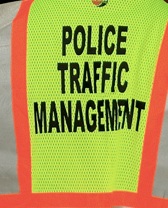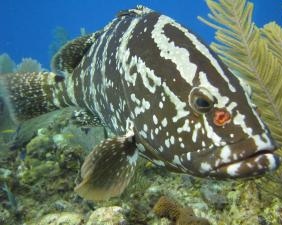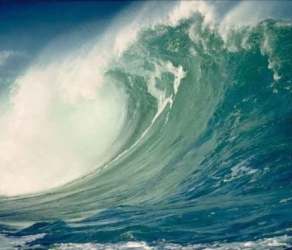Archive for March 18th, 2011

AG warns industry to prep for Libya assets freeze
 (CNS): The local anti-money laundering steering group committee is gearing up for a direction from the UK to restrict and freeze assets relating to members of the Libyan regime in connection with a UN and an EU resolution. The attorney general circulated a letter on Friday asking the financial industry to beginning identifying and taking pro-active steps to manage assets that may fall under the UN’s resolution. At the moment the UN Security Council resolution places restrictions on and freezes assets of some 26 individuals in Libya. Although the measures are not yet in force in the Cayman Islands, the committee is asking for industry co-operation and the AG said more information would be released when notice comes from the UK.
(CNS): The local anti-money laundering steering group committee is gearing up for a direction from the UK to restrict and freeze assets relating to members of the Libyan regime in connection with a UN and an EU resolution. The attorney general circulated a letter on Friday asking the financial industry to beginning identifying and taking pro-active steps to manage assets that may fall under the UN’s resolution. At the moment the UN Security Council resolution places restrictions on and freezes assets of some 26 individuals in Libya. Although the measures are not yet in force in the Cayman Islands, the committee is asking for industry co-operation and the AG said more information would be released when notice comes from the UK.
The measures are outlined in the EU Council Decision 2011/137 CFSP and the UN 1970 (2011) and include restrictions on arms, internal repression equipment, a travel ban and the freezing of funds and economic resources of certain named people involved in serious human rights abuses in Libya, including the leader Colonel Gaddafi and members of his family, as well as other senior people associated with the regime.
An order in council is expected from the UK soon that will extend the UN resolution to here. This means that local entities that hold any kind of accounts or manage any assets for these people will need to comply with the resolution.
Attorney General Samuel Bulgin said the order would give direct effect to the measures in the territories and would then be enforced in domestic law.
“Pending the coming into effect of the UK OIC, it is important that relevant Cayman Islands authorities and the local financial industry take positive and proactive action in this regard,” he wrote. “The industry is therefore strongly encouraged to take steps to identify and appropriately manage relevant assets in the Cayman Islands which involves those assets held by the specified persons" in the Security Council Resolution.
These interim measures could include enhanced monitoring or filing of suspicious activity reports and the AG recommended that financial institutions incorporate the resolution into their risk assessment framework.
See AG’s letter below.

Cyclist knocked down in hit and run
 (CNS): A cyclist escaped with only cuts and cruises after he was knocked from his bicycle by a driver who failed to stop. Police said on Friday evening that officers from the Traffic Management of the RCIPS are now investigating the collision, which occurred just after midnight in the early hours of Thursday, 17 March. The cyclist was riding along Theresa Drive in George Town when he was hit by the motorist, who failed to stop at the scene. The police did not give any details of the description of the vehicle but are looking for anyone that may have witnessed the incident to come forward. (Photo by Dennie Warren Jr)
(CNS): A cyclist escaped with only cuts and cruises after he was knocked from his bicycle by a driver who failed to stop. Police said on Friday evening that officers from the Traffic Management of the RCIPS are now investigating the collision, which occurred just after midnight in the early hours of Thursday, 17 March. The cyclist was riding along Theresa Drive in George Town when he was hit by the motorist, who failed to stop at the scene. The police did not give any details of the description of the vehicle but are looking for anyone that may have witnessed the incident to come forward. (Photo by Dennie Warren Jr)
The cyclist was transported to George Town Hospital following the hit and run, where his was treated for cuts and bruises to his arms and right leg. The police would like witnesses or anyone who may have knowledge of the incident to contact PC 291 Harris at Traffic Management on 946-6254

Masked robber fires shot
 (CNS): What is reportedly the first robbery on Grand Cayman for almost two weeks, the longest period the island has gone since the beginning of the year, took place around 9:30pm in East End last night, Thursday 17 March, when at least one shot was fired. Police said they received a report that a man had been robbed in Fiddlers Way by a masked gunman. The suspect fired a shot (or shots) into the air before making off with a sum of cash and a bracelet, police stated. No one was injured during the incident and uniform, CID and armed officers attended the scene and conducted a search for the suspect but no arrests have yet been made. Police did not say if any evidence of the gunshots, such as bullets or casings, were recovered.
(CNS): What is reportedly the first robbery on Grand Cayman for almost two weeks, the longest period the island has gone since the beginning of the year, took place around 9:30pm in East End last night, Thursday 17 March, when at least one shot was fired. Police said they received a report that a man had been robbed in Fiddlers Way by a masked gunman. The suspect fired a shot (or shots) into the air before making off with a sum of cash and a bracelet, police stated. No one was injured during the incident and uniform, CID and armed officers attended the scene and conducted a search for the suspect but no arrests have yet been made. Police did not say if any evidence of the gunshots, such as bullets or casings, were recovered.
Police stated, however, that since the report, officers have been speaking to the victim and other potential witnesses to establish exactly what took place and said that an update will be provided in due course.
The robbery is the eighteenth of 2011 and follows a robbery on the evening of the 5 March at 3N’s grocery store, Batabano Plaza, West Bay. Police have arrested and charged one man in connection with that incident, in which the masked man, armed with what appeared to be a gun, entered the store around 8pm, threatened staff and demanded cash before making off with what was described as a “small sum of money”.

Nassau grouper starting to recover off Cayman Islands
 (Scuba Diving): Scientists studying the Nassau grouper, an iconic Caribbean reef fish decimated by over-fishing, say the species is showing tentative signs of recovery off the Cayman Islands since the local government imposed protective restrictions eight years ago. However, their research also shows that the groupers’ behavior during spawning – and subsequent dispersal of their larvae – may threaten the long-term viability of the species without further protection. “Nassau groupers form large aggregations to spawn,” said Scott Heppell, a fisheries ecologist.
(Scuba Diving): Scientists studying the Nassau grouper, an iconic Caribbean reef fish decimated by over-fishing, say the species is showing tentative signs of recovery off the Cayman Islands since the local government imposed protective restrictions eight years ago. However, their research also shows that the groupers’ behavior during spawning – and subsequent dispersal of their larvae – may threaten the long-term viability of the species without further protection. “Nassau groupers form large aggregations to spawn,” said Scott Heppell, a fisheries ecologist.

Caribbean drills for tsunami warning
 (CNS): Following the devastating tsunami that hit Japan last week in the wake of a massive earthquake, people across the Caribbean, including the Cayman Islands, will be taking part in a tsunami drill next Wednesday (23 March). According to Hazard Management Cayman Islands (HMCI), the threat of a tsunami to the Cayman Islands is low. Nevertheless, purpose of this tsunami response exercise is to evaluate local tsunami response plans, increase tsunami preparedness, and improve coordination throughout the region.
(CNS): Following the devastating tsunami that hit Japan last week in the wake of a massive earthquake, people across the Caribbean, including the Cayman Islands, will be taking part in a tsunami drill next Wednesday (23 March). According to Hazard Management Cayman Islands (HMCI), the threat of a tsunami to the Cayman Islands is low. Nevertheless, purpose of this tsunami response exercise is to evaluate local tsunami response plans, increase tsunami preparedness, and improve coordination throughout the region.
“The vulnerability analysis that was conducted for Grand Cayman indicates that the threat of a damaging tsunami is low, but this exercise provides us with a useful opportunity to test the current procedures of the Tsunami Warning System and to look at our own communications protocol in the event that a tsunami wave is threatening the Cayman Islands. It is also a good opportunity for us to identify various operational strengths and weaknesses that would guide us in the development of our tsunami response plans” said McCleary Frederick, Director of HMCI.
The exercise, titled CARIBE WAVE 11/LANTEX 11, will simulate a widespread Tsunami Warning and Watch situation throughout the Caribbean which requires implementation of local tsunami response plans. It is the first such international exercise in the Caribbean region. The exercise will not include public notification.
The exercise will simulate a major earthquake and tsunami generated 25 miles southeast of Fajardo, Puerto Rico and 55 miles southeast of San Juan, Puerto Rico at 9:00am Atlantic Standard Time on 23 March 2011. Exercise participants will be provided with a handbook which describes the scenario and contains tsunami messages from the West Coast/Alaska Tsunami Warning Center (WCATWC) and the Pacific Tsunami Warning Center (PTWC). The WCATWC is currently responsible for providing tsunami information to the Atlantic coasts of US and Canada, the Gulf of Mexico coast, Puerto Rico, and the Virgin Islands while the PTWC is the interim Regional Tsunami Watch Provider for the other countries in the Caribbean Sea and Adjacent Regions.
A number of local agencies will be participating in the exercise including 911, the Royal Cayman Islands Police Service, Cayman Islands National Weather Service and Government Information Services.
If any real tsunami threat occurs during the time period of the exercise, the exercise will be terminated. The exercise is sponsored by the UNESCO/IOC Intergovernmental Coordination Group for Tsunami and Other Coastal Hazards Warning System for the Caribbean and Adjacent Regions (ICG/CARIBE-EWS), the Caribbean Emergency Management Agency (CDEMA), the Centro de Coordinación para la Prevención de los Desastres Naturales en América Central (CEPREDENAC), the U.S. National Oceanic and Atmospheric Administration (NOAA) and by the US National Tsunami Hazard Mitigation Program (NTHMP – a partnership of 29 states and territories and three federal agencies). For more information on the U.S. tsunami warning system, see www.tsunami.gov. For more information on the NTHMP, see nthmp.tsunami.gov. For more information on the ICG/CARIBE-EWS, see http://www.ioc-tsunami.org.
Hoax bomber claims ‘Jihad’
CNS): A 35-year-old man called the 911 emergency communications centre on Monday afternoon, 14 March, claiming that he was a member of ‘Jihad’ and had planted C4 – a plastic explosive – in the Cayman Islands, the RCIPS reported earlier today (Friday 18 March). Police did not reveal where the man said he had supposedly planted his bomb or if there were any confirmed evacuations of public places at the time the call was made to emergency services. Officials did reveal however that a man was subsequently arrested on thesame day as the incident, following a police operation in the West Bay area.
The man who has now been charged with a bomb hoax was due to appear in summary court on Friday but with no magistrates available the accused man’s appearance has been put off until Monday.
Free lionfish and fritters on Brac Saturday night
(CNS): Following two days of a concentrated lionfish cull around Cayman Brac today (Friday) and tomorrow, residents and tourists on the island will be given the opportunity to see what the pesky critters taste like during happy hour at La Esperanza. Local fisherman Elvis McKeever will be frying up lionfish and fritters, which will be given away to anyone willing to give them a try. DoE Research Officer Bradley Johnson noted that outside the marine parks anyone with a regular spearfishing licence can catch as many lionfish as they like – unlike native species there is no limit to how many people can catch.
Nine divers will be going out in the two Department of Environment vessels today, and Reef Divers has donated a 2-tank dive for each of the lionfish hunters to go out on Saturday. At the end of each day’s cull, the fish will be cleaned at Carib Sands dock and handed over to McKeever to season up for the fish fry. Care must be taken when cleaning the fish as their sharp venomous spines can inflict painful wounds. However, once the spines are removed the flesh is safe to eat.
The fish can easily be caught while snorkelling as well as diving as they can be found at all depths, from one foot to 1,000 feet, and have been spotted all over the Brac, including the Panama Canal and inside the reef on the south side, Johnson said.
Saturday night’s fish fry will start at 6:00pm at La Esperanza in the Creek, and Johnson will also be giving a short presentation about the invasion of the lionfish into Cayman waters and explain why the DoE is concerned about their impact on the reefs.
Indigenous to the Indo- Pacific Ocean, lionfish were first reported off Florida’s Atlantic coast in the mid-1980s. Their numbers have exploded along the US eastern seaboard, Gulf of Mexico and Caribbean over the last decade, to the detriment of native fish. Although they are beautiful, the lionfish have voracious appetites and gobble up juveniles of other species.
Their only significant predators are humans, and the DoE is encouraging people to catch and eat as many as possible and is hoping that residents develop a taste for them. Inside marine parks it is illegal to catch them without a specific licence to do so, but outside the parks there is no catch limit for lionfish.

One in ten Chinese- US companies engaged in fraud
 (CNS): At least 10% of Chinese companies that have gone public on stock exchanges in the United States are engaged in fraud. The deals often involve establishing offshore holding companies in the British Virgin Islands, Cayman Islands, Samoa or another offshore jurisdiction in order to conceal illegal conduct, according to Sharesleuth.com, an investigative news web-site controlled by well-known American businessman Mark Cuban. The claim was made to OffshoreAlert ahead of next month’s conference in Miami. Chris Carey, Editor and President of Sharesleuth.com will be sharing the findings from the research conducted by the site in one of the conference presentations.
(CNS): At least 10% of Chinese companies that have gone public on stock exchanges in the United States are engaged in fraud. The deals often involve establishing offshore holding companies in the British Virgin Islands, Cayman Islands, Samoa or another offshore jurisdiction in order to conceal illegal conduct, according to Sharesleuth.com, an investigative news web-site controlled by well-known American businessman Mark Cuban. The claim was made to OffshoreAlert ahead of next month’s conference in Miami. Chris Carey, Editor and President of Sharesleuth.com will be sharing the findings from the research conducted by the site in one of the conference presentations.
"Upwards of 400 Chinese companies have gone public on U.S. exchanges through reverse mergers," says Carey. "We’ve identified at least 40 deals – or fully 10 percent – that have involved some degree of fraud or deception. We recently turned up two Chinese reverse mergers in which the U.S. shell companies were controlled by close relatives of people who previously operated boiler-room brokerages that defrauded investors of millions of dollars. Given those connections, why would anyone want to invest in those companies?"
Investors who have been flocking to buy Chinese stocks on U. S. exchanges need to up the quality of their due diligence to avoid losses, Carey warned. “The presence of so many middlemen with previous SEC or FINRA violations should be an obvious red flag for investors and regulators. Just because a stock is listed on a U.S. exchange does not mean it has been thoroughly vetted, or that it has any sort of seal of approval.”
During the session guests will learn how to spot red flags, how to perform deeper research on the Chinese companies, and how to acquire and analyze Chinese tax filings and other documents to compare reported sales and earnings in SEC filings against reported sales and earnings for the underlying businesses overseas.
The conference takes place at the Ritz Carlton Miami 4-6 April.

EC to examine Swiss black listing by Italy
(Swiss info): The European Commission (EC) will investigate alleged discrimination by Italy against Swiss businesses. In a letter dated March 14, which has been placed on the EC list of procedures for violation of European treaties, the commission has asked Rome to explain its decision to place Switzerland on its black list of tax havens. Switzerland has repeatedly complained to both Italy and the EC about having being placed on the black list. Placement of Switzerland on the black list means that Swiss businesses wanting to tender for public offers must first obtain authorisation to do so by supplying additional information to the Italian finance ministry.

Speaker calls MLAs for early morning sitting
 (CNS): Members of the Legislative Assembly are being called to sit in the country’s parliament tomorrow morning at 8am after the Speaker of the House ruled to stop what was developing into a comedy of errors on Thursday evening when government lost a vote over the afternoon extension. In a day when the LA’s Standing Orders – or rules of engagement — were being argued over and stretched every which way as government attempted to prevent the opposition from debating the situation regarding the Public Accounts Committee, the House rules eventually worked against it when it was caught short on members in the chamber as an adjournment vote was called for.
(CNS): Members of the Legislative Assembly are being called to sit in the country’s parliament tomorrow morning at 8am after the Speaker of the House ruled to stop what was developing into a comedy of errors on Thursday evening when government lost a vote over the afternoon extension. In a day when the LA’s Standing Orders – or rules of engagement — were being argued over and stretched every which way as government attempted to prevent the opposition from debating the situation regarding the Public Accounts Committee, the House rules eventually worked against it when it was caught short on members in the chamber as an adjournment vote was called for.
According to Standing Orders, the parliament’s normal business hours are between 10am and 4:30pm. If a debate or other business is on-going at that time then members must vote to carry on the work. Government sought to continue on this afternoon (Thursday) but because a number of members were absent from the chamber when the vote was called for, it lost in the face of opposition members voting to adjourn in order to attend the UCCI conference.
When the premier then insisted that they should reconvene at 7:30pm after the UCCI event, he found that Standing Orders were against him and despite arguing his case vociferously, as the premier said he could not attend the House on Friday, the speaker made an emphatic ruling before she got up and left, stating that the members would return to the Legislative Assembly on Friday morning at 8am regardless.